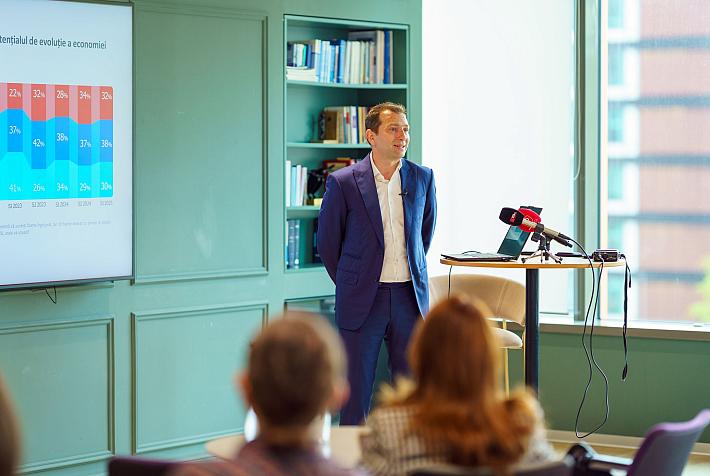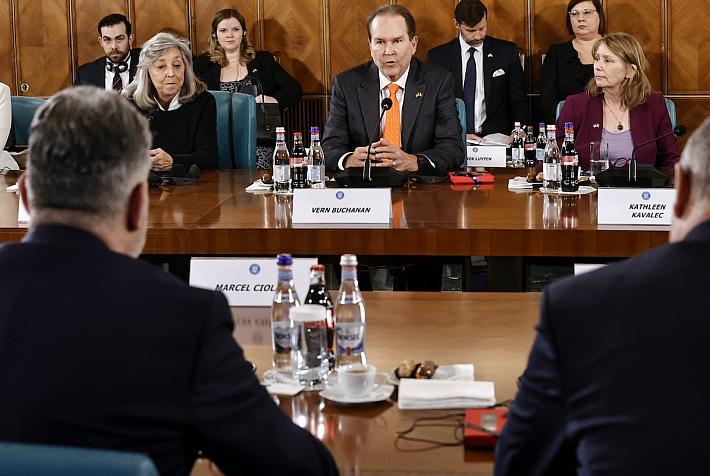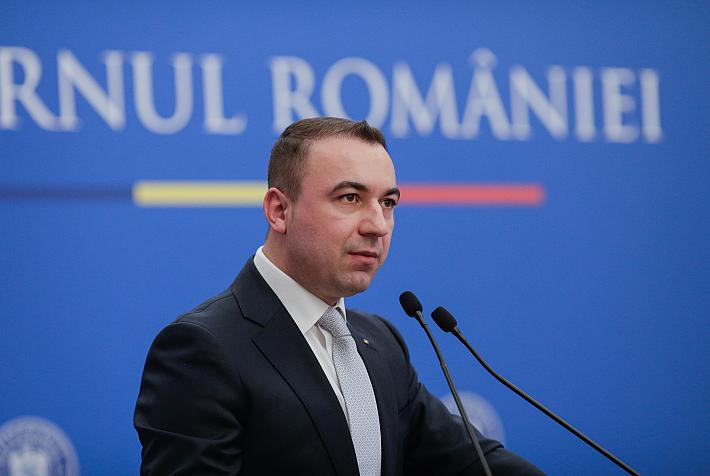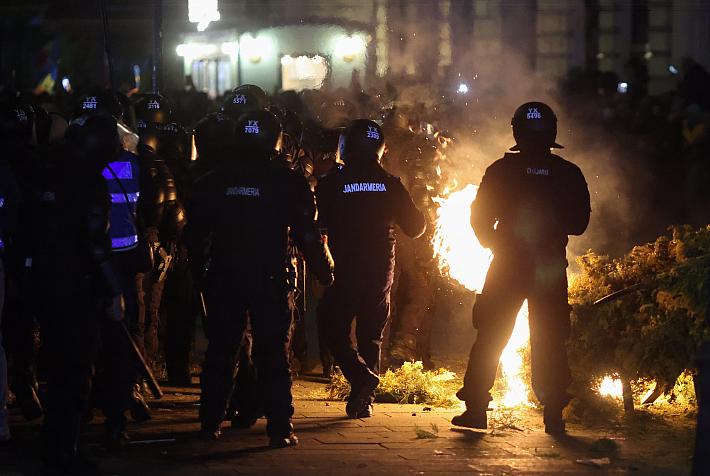How a Romanian-born startup wants to make slow travel the easy choice

Ruuts.travel started as an RV rental marketplace founded by travel enthusiasts facing the pandemic's lockdowns. It has since expanded into a one-stop booking hub focused on slow travel and local experiences, emphasizing options for a more sustainable way to discover places, while counteracting the challenges of over-tourism. Co-founder Katina Moldovan told Romania Insider more about Ruuts.travel's plans to broaden its reach.
Ruuts.travel was born during the pandemic's period of lockdowns as its founders were looking for a safe way to keep up their passion for travel and the outdoors. An RV looked like the safest way to do it as it provided an individual space at a time when people were advised to keep interaction with others to a minimum. Research showed that the market of Eastern Europe had no RV rental marketplace, so they decided to seize the opportunity and build one.
"Ruuts.travel was born during the pandemic, in the middle of lockdowns, out of a deep desire to travel again. My co-founder, Thomas [e.n. Bangert], and I had been nomad travelers for quite some time, so being stuck in one place for months was incredibly difficult. As professionals in the tourism industry, we closely followed market trends, industry news, and webinars. It became clear that the only way people could travel safely at that time was by taking their home with them - through RVs. When we researched the market, we saw highly successful RV rental marketplaces in Western Europe, the US, and Australia, but none in Eastern Europe. That's when we realized the opportunity and decided to build one," Katina Moldovan, co-founder of Ruuts.travel, says.
The project was developed from the very beginning with the idea of offering an option to those interested in slow travel.
"From the start, we had a bigger vision: not just an RV marketplace, but an all-encompassing slow travel platform, catering to travelers seeking immersive, sustainable, and meaningful experiences. Ruuts.travel was created to fill that gap and redefine how people explore the world at a slower pace."
The transition from project idea to implementation was "surprisingly smooth," she explains. "The first major step was assembling the right team, and that happened quickly—we found like-minded people who were just as passionate about travel and the outdoors as we were. Having a strong, motivated team from the beginning made all the difference."
After finding their first angel investor, the project was ripe to launch by the end of 2022. "Securing our first angel investor, Stelian Bogza, was another defining moment. It was a perfect match - someone who understood our vision immediately and believed in what we were building. With an initial investment we wasted no time incorporating the company and getting to work on Ruuts. What started as a prototype quickly evolved into a fully functional and transactional platform, and by the end of 2022, we were ready to launch."
Popularizing the peer-to-peer RV rentals concept was part of the team's initial work, and the effort to do so has paid off, the team found.
"The first real challenge came when we started looking for Romanian RV owners to join the platform. At that time, the concept of peer-to-peer RV rentals and digital distribution partnerships was still quite new in Eastern Europe. Many rental companies were skeptical and hesitant to collaborate. It took time and persistence to educate the market and build trust. However, once the first businesses saw the potential, things quickly shifted. Today, the situation has completely reversed - RV companies now approach us, eager to list their vehicles on Ruuts."
More than EUR 200,000 were invested into building and scaling Ruuts Travel, covering platform development, RV API integration, expanding the travel offerings, and growing a community of more than 20,000 members "who share our passion for slow and sustainable travel."
The project started with a three-member core team, Katina Moldovan, Thomas Bangert, and Robert Diaconeasa. "Alongside us, we had a talented team of developers and a designer who helped bring the first version of Ruuts to life. It was an exciting time, filled with energy, passion, and the shared belief that we were building something truly special. As we started growing, we brought in more expertise - first a marketer, then a social media expert, and an operations officer. Each new team member added their own spark, helping Ruuts evolve from an idea into a fully operational platform," she explains.
The team now comprises seven key people: CEO, CCO, social media specialist, marketing & operations, front-end developer, back-end developer, and designer. "It's a lean but powerful team, made up of individuals who truly believe in the mission of Ruuts—to make slow, sustainable travel more accessible and rewarding for everyone. And for that, I couldn't be more grateful."
Gearing up for a packed 2025
After initially offering Romanian motorhomes to Romanian users, the platform is integrating an API that will give it access to up to 4,000 RVs across Europe. "We started as a local RV marketplace, initially offering only Romanian motorhomes for Romanian users. It was a niche but much-needed service, and the response was great. Now, we're taking things to the next level. We're in the final stages of integrating an API that will give us access to up to 4,000 RVs across Europe ( 7000 globally), making it easier than ever for travelers to explore the continent at their own pace."
It is also providing access to alternative accommodation options, in line with its mission of supporting the slow travel experience. Another goal is to provide alternative accommodation throughout Europe, with a particular focus on Eastern Europe.
"Expanding into alternative accommodation was the natural next step, aligning with our vision for a complete slow travel experience. We first tested the waters with Booking.com and Homecamper through an affiliation model, and after seeing strong interest, we moved towards direct API integrations. We've just signed a contract with a major provider, which will soon allow us to offer camping spots, glamping, holiday homes, and other unique stays.
Looking ahead, we aim to provide alternative accommodation all over Europe, with a special focus on Eastern Europe as a destination. Our goal is to encourage travelers to step off the beaten path, discover hidden gems, and escape mass tourism - embracing the true essence of slow travel," the co-founder says.
This year, Ruuts is in expansion mode. After working to make experiences available on the platform, it is also looking to launch a referral program and introduce CO₂ tracking and compensation, among other developments.
"Over the past few weeks, our focus has been on launching experiences, which are now live on the platform. We've started with Eastern Europe and are actively expanding across the rest of the continent, offering travelers unique, immersive activities that align with slow travel values.
Looking ahead, our key priorities for 2025 include: finalizing API integrations – the RV API is set to be completed by the end of February. The alternative accommodation API (covering campsites, glampings, and holiday homes) will follow in Q2; launching the referral program – a key growth driver to expand our user base through word-of-mouth; introducing CO₂ tracking and compensation – we're integrating a CO₂ calculator and partnering with Trees4Travel to allow travelers to compensate their carbon footprint; adding an AI travel companion – a smart assistant to help users plan personalized, sustainable trips; and offering eSIM cards – ensuring travelers stay connected while exploring off-the-beaten-path destinations."
As soon as next month, Ruuts will launch in the UK through third-party distribution and plans to enter Germany by the end of the year. It is currently raising a EUR 250,000 bridge round to support its expansion and tech development.
"In March, we're launching the UK market through third-party distribution, following the successful partnership model we have with Vola.ro in Romania. By the end of 2025, we plan to enter Germany, another key market for slow travel.
To support these ambitious plans, we're currently fundraising, raising a EUR 250,000 bridge round to fuel our expansion and tech development.
As for expanding rental locations, through our new API integration, travelers will soon be able to book RVs, Accommodation and Experiences from multiple cities across Europe, making slow travel more accessible than ever," the co-founder explains.
The success of the expansion depends on several key factors, including the successful API integrations, strategic partnerships, and funding.
"We are currently finalizing direct connections with major accommodation providers to scale our inventory efficiently. Just like our collaboration with Vola.ro in Romania, we are seeking distribution partners in other countries to accelerate growth. Raising the bridge round is crucial for Ruuts.travel, to support tech development and expansion into new markets."
At the same time, the startup has been selected for the second phase of Rubik Hub's accelerator program supporting high-potential startups in their early growth stages. The accelerator's Ready to Raise program focuses on preparing startups for investment rounds, "helping us refine our fundraising strategy and strengthen our pitch to investors." This month, they will attend the Go Global accelerator in Milan, a program designed to help startups scale internationally. "We are excited to leverage these opportunities to drive our expansion and secure the funding needed for our next growth phase," she says.
Better travel choices
The team at Ruuts Travel points to overtourism as one of the biggest challenges in travel, with its adverse impact on the environment, local communities, and visitor experience.
"One of the biggest challenges in travel today is overtourism - a phenomenon where 80% of global travelers visit only 10% of destinations, putting immense pressure on popular cities while leaving other, equally beautiful places overlooked. This imbalance not only affects the environment but also has profound social and cultural consequences. Many lesser-visited areas face depopulation, turning once-thriving villages into ghost towns. As younger generations leave in search of better opportunities, local traditions, crafts, and ways of life start to disappear. Meanwhile, the overexposure of famous destinations leads to rising costs of living, pollution, and environmental degradation."
This is why they've made it their mission to offer a way to travel that highlights alternative accommodation options, train travel, and ways to connect with the local communities travelers arrive in.
"At Ruuts, we believe slow travel is the key to a more sustainable and balanced future. Our vision goes beyond being a marketplace - we want to reshape the way people travel. That's why we are working on creating the world's first SlowTA- Slow Travel Agents, an innovative model that promotes: alternative accommodations instead of hotels, encouraging stays in eco-lodges, tiny houses, RVs, campings, and locally owned properties; train travel instead of flights, reducing the carbon footprint of transportation; and unique, immersive local experiences instead of mainstream attractions, helping travelers connect with the culture and communities they visit," she explains.
It is an approach aligned with the seven UN Sustainable Development Goals, the co-founder explains.
"Beyond offering better travel choices, we also want to actively give back. Our partnership with Trees4Travel will allow us to plant trees for every booking, compensating for the environmental impact of travel."
As people seem increasingly inclined to choose sustainable travel options, the startup can get closer to its goals. "According to a Booking.com survey, a staggering 81% of travelers say they are ready to travel sustainably - yet many still struggle to find practical ways to do so. This is exactly where Ruuts comes in: we want to make sustainable travel the easy choice, not the complicated one," Katina explains.
The strategic partnerships with large distribution platforms and OTAs (online travel agencies), growing their product supply, developing AI-driven tools to make slow travel easier, and raising investment to enter new markets and scale their impact are other factors informing the startup's development. "Ultimately, we want to redirect tourism flows, helping travelers discover lesser-known places, support local economies, and preserve cultural heritage, all while reducing their environmental footprint."
Ruuts Travel is also offering the Greener Award. It recognizes European accommodations - not just Romanian ones – "that actively contribute to protecting the environment, reducing emissions, and promoting sustainable travel."
"Sustainability in travel isn't just a trend; it's a necessity. Tourism accounts for nearly 8% of global carbon emissions, and accommodation plays a significant role in shaping more responsible travel experiences. By offering the Greener Award, we want to encourage businesses to adopt more sustainable practices […]."
Reaching a wider audience
The users of the platform share an interest in meaningful and sustainable ways to explore the world. "Ruuts Travel attracts a wide range of travelers who are looking for more meaningful and sustainable ways to explore the world. Many of our users are experience-driven, preferring to immerse themselves in local cultures rather than just ticking off tourist hotspots. They appreciate unique accommodation, alternative transport options, and travel experiences that allow them to connect with nature and local communities."
With its expansion plans unfolding, the project is attempting to reach a wider audience.
"While our platform initially appealed to eco-conscious travelers, road trip enthusiasts, and digital nomads, we are now expanding to a much broader audience. Families looking for relaxing getaways in nature, couples searching for unique stays, and even professionals interested in remote work-friendly locations are turning to Ruuts for options beyond traditional hotels and crowded tourist areas.
With upcoming features like train travel options, a growing selection of alternative accommodations, and curated local experiences, we aim to make sustainable travel accessible to everyone. Our focus is on offering diverse choices that cater to travelers who want a deeper, more rewarding way to explore destinations while ensuring their trips have a positive impact."
Meanwhile, Ruuts Travel has started receiving industry recognition. The received the World Travel & Tourism Council (WTTC) Award at the Tourism Innovation Summit (TIS) in Seville for their efforts to promote eco-friendly and community-driven travel solutions, and were among the seven finalists for the Travolution Awards 2024 in the "Startup of the Year" category.
(Photo: Katina Moldovan and Thomas Bangert from Ruuts Travel)
simona@romania-insider.com











